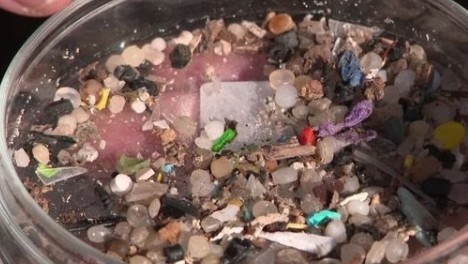Study Says Microplastics Linked to Lung and Colon Cancer
By Mikala Theocharous, 9News
Microplastics have been linked to colon and lung cancer, an international study has found in everything from our drink bottles to clothes. They have also been linked to colon and lung cancer, an international study has shown.
They are found in clothes and microfibres shed from car tyres.
Microplastics are plastics smaller than five millimetres, which are small enough to make their way to the bloodstream or be ingested unknowingly.
Dr Nick Chartres from Sydney University led the study with colleagues in the US, looking at 28 animal and three human studies closely to identify the impacts of microplastics on humans.
The team identified suspected human health risks from microplastic exposure in the respiratory, digestive and reproductive health systems.
“What we saw were consistent effects across the respiratory system, we saw injury to the lung… we also saw chronic inflammation in the lung,” Chartres said.
“These markers are often used as predictors of cancer, we also saw that type of inflammation in the colon, which is linked to colon cancer.
“We also saw effects in the reproductive system, so reductions in sperm quality and damage to the sperm.”
Chartres called on the government to ban single-use plastics immediately, based on the findings of the study.
“There’s absolutely no reason why government shouldn’t be taking action based on what we found,” he said.
“We don’t want to be waiting ten years to follow up in humans to see if they are carcinogens, there are certainly markers here that they are predictors of cancer.”
The findings come after another major study found that patients who had microplastics found in their fatty arteries were more likely to have a heart attack, stroke or die when compared to those with plastic-free diseased arteries.
Victorian chief environmental scientist Mark Taylor said the recent findings are reason to cause concern, but not alarm, as microplastics are not a definitive cause of cancer.
“The wheels of regulation are moving but as individuals, we can make choices about the material we buy, the food containers we use, how we transport our water, our drinks, the clothing that we wear.”

